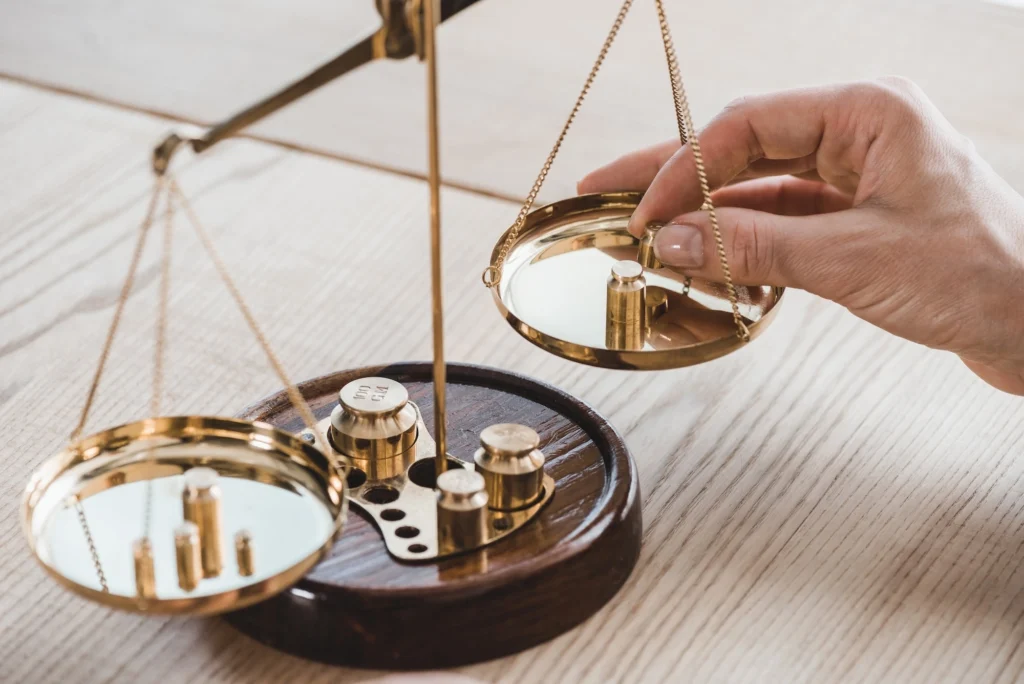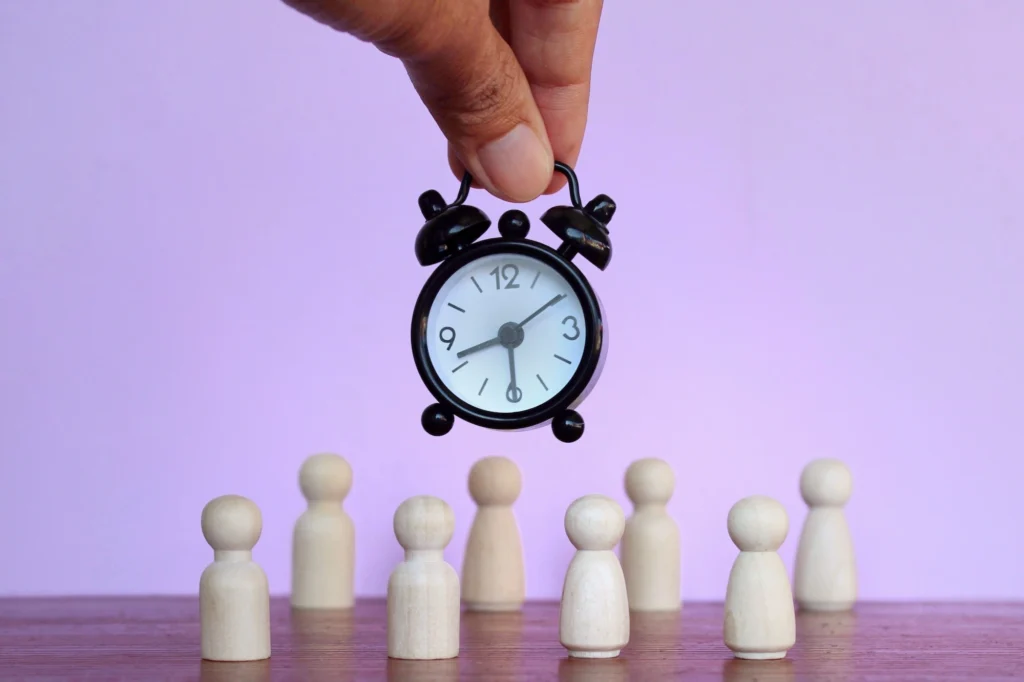Recovering from drugs and alcohol is a tough journey. It takes a lot of effort, support, and most importantly, balance. Having balance in your life is crucial for a successful and long-lasting recovery. This blog will explain why balance is so important in recovery, how you can achieve it, and how it can improve your life.

What is Balance in Recovery?
Balance in recovery means finding a healthy mix between different parts of your life. This includes taking care of your physical health, emotional well-being, relationships, work, and fun activities. Without balance, you can feel overwhelmed, stressed, or burned out, which can lead to relapse.
Parts of a Balanced Life
Physical Health
- Nutrition: Eating healthy foods helps your body heal from the damage caused by substance abuse and gives you the energy you need.
- Exercise: Regular exercise improves your mood, reduces stress, and boosts your overall health. Aim for at least 30 minutes of exercise most days.
- Sleep: Getting enough sleep is essential. Aim for 7-9 hours each night to recharge your body and mind.
Emotional Well-being
- Therapy: Regular therapy sessions can help you understand your addiction, identify triggers, and develop coping strategies.
- Mindfulness: Practices like meditation, yoga, and deep breathing can help you stay calm and manage stress.
- Hobbies: Do activities you enjoy to relax and express yourself.
Relationships
- Support System: Surround yourself with positive influences like family, friends, and support groups. They can encourage and support you.
- Healthy Boundaries: Set and maintain boundaries to protect your recovery. Avoid people or situations that may trigger a relapse.
- Communication: Honest communication is key to healthy relationships. Express your needs and listen to others.
Work and Education
- Purpose: Finding purpose in your work or studies can give you a sense of accomplishment and direction.
- Balance: Avoid overworking yourself. Ensure you have time for rest and fun activities.
- Growth: Pursue opportunities for personal and professional growth. Continuous learning can boost your self-esteem and keep you motivated.
Leisure and Relaxation
- Recreation: Make time for fun and relaxation. Whether it’s reading, hiking, or watching a movie, these activities can help you unwind.
- Social Activities: Participate in social events that do not involve drugs or alcohol. Building new, healthy friendships is important.
The Role of Recovery Groups
Recovery groups, like Alcoholics Anonymous (AA) or Narcotics Anonymous (NA), are very important in recovery. They provide a supportive community where you can share experiences, find encouragement, and learn from others who have faced similar challenges. However, it’s important to balance in recovery groups with other parts of your life.
Balancing Recovery Groups
While recovery groups are essential, spending too much time in these groups can cause you to miss out on other important parts of life. Here’s how to keep a healthy balance in recovery:
Avoid Over-dependence
- Diverse Support System: Rely on different sources of support, including family, friends, therapists, and support groups. This prevents over-dependence on any single group.
- Self-Reliance: Build coping skills and strategies you can use independently.
Time Management
- Schedule: Create a balanced schedule that includes time for recovery meetings, work, exercise, hobbies, and relaxation. Make sure you’re not spending all your free time in meetings.
- Prioritize: Focus on the meetings and activities that help your recovery the most. Balance these with other important areas of your life.

Personal Growth
- Broaden Horizons: Do activities outside of recovery groups to expand your interests and skills. This could include hobbies, volunteering, or pursuing further education.
- Balance Social Life: Spend time with friends and family who support your sobriety. Building a balanced social life can help you feel more fulfilled and connected.
Work and Responsibilities
- Career Goals: Focus on your career or educational goals. Balance your time between recovery groups and pursuing personal and professional growth.
- Family Obligations: Make sure you are meeting your responsibilities to your family and loved ones. Balance your involvement in recovery groups with spending quality time with them.
Why Balance is Crucial in Recovery
Prevents Relapse
- Stress Reduction: High stress levels can trigger relapse. A balanced life helps manage stress, reducing the risk of returning to substance use.
- Healthy Coping Mechanisms: By maintaining balance, you develop healthy ways to cope with challenges, making it easier to resist the urge to use drugs or alcohol.
Improves Physical Health
- Healing: Substance abuse can cause significant damage to your body. Proper nutrition, exercise, and sleep promote healing and overall health.
- Energy Levels: A balanced lifestyle boosts your energy levels, making it easier to stay active and engaged in recovery activities.
Enhances Emotional Stability
- Mood Regulation: Regular therapy, mindfulness practices, and engaging hobbies can help stabilize your mood and reduce symptoms of anxiety and depression.
- Self-Awareness: Balance allows you to become more aware of your emotions and triggers, helping you address them before they lead to relapse.
Strengthens Relationships
- Support: A strong support system is essential for balance in recovery. Healthy relationships provide emotional support, encouragement, and accountability.
- Trust: Building and maintaining trust in your relationships is crucial. Balance helps you stay honest and reliable, strengthening your bonds with others.
Promotes Personal Growth
- Self-Esteem: Achieving balance in recovery can boost your self-esteem and confidence. As you meet your goals and maintain sobriety, you’ll feel proud of your progress.
- New Opportunities: A balanced life opens doors to new opportunities for personal and professional growth. Pursuing these opportunities can give you a sense of purpose and direction.
Tips for Achieving Balance in Recovery
Set Realistic Goals
- Break down your goals into manageable steps. Celebrate small victories along the way to stay motivated.
Prioritize Self-Care
- Make self-care a non-negotiable part of your routine. Schedule time for activities that nurture your physical, emotional, and mental health.
Create a Daily Routine
- Establish a daily routine that includes time for work, exercise, hobbies, and relaxation. Consistency can help you stay on track.
Stay Connected
- Regularly communicate with your support system. Attend support group meetings and stay in touch with friends and family.
Practice Mindfulness
- Incorporate mindfulness practices into your daily life. Take a few minutes each day to meditate, breathe deeply, or simply be present.
Seek Professional Help
- If you’re struggling to achieve balance, don’t hesitate to seek professional help. Therapists, counselors, and recovery coaches can provide valuable guidance.
Be Flexible
- Understand that life is unpredictable. Be willing to adjust your plans and routines as needed. Flexibility is key to maintaining balance.
The Positive Impact of Balance on Recovery
Increased Resilience
- A balanced lifestyle makes you more resilient to stress and setbacks. You’ll be better equipped to handle challenges without turning to substances.
Improved Quality of Life
- Balance enhances your overall quality of life. You’ll feel healthier, happier, and more fulfilled.
Long-Term Sobriety
- Maintaining balance significantly increases your chances of long-term sobriety. You’ll be better prepared to navigate the ups and downs of life without relapsing.
Personal Fulfillment
- Achieving balance allows you to pursue your passions and interests. You’ll find greater satisfaction in your work, relationships, and leisure activities.
Stronger Support System
- Balanced relationships are more supportive and fulfilling. You’ll build stronger connections with those who care about your well-being.
Conclusion
Balance is not just a goal in recovery; it is a continuous process that requires dedication and effort. By focusing on physical health, emotional well-being, relationships, work, and leisure activities, you can create a balanced life that supports your sobriety. Remember, it’s okay to seek help and make adjustments along the way. The journey to balance is unique for everyone, but the rewards are universal: improved health, emotional stability, stronger relationships, and a more fulfilling life.
If you or a loved one is struggling with addiction, don’t wait another day to seek help. At Asheville Recovery Center, we offer compassionate, personalized care to support your journey towards recovery. Our experienced team is dedicated to providing comprehensive treatment plans tailored to your unique needs. Contact us today to learn more about our programs and start your path to a healthier, sober life. Call us now or fill out a contact form to get started. Your recovery begins here.






